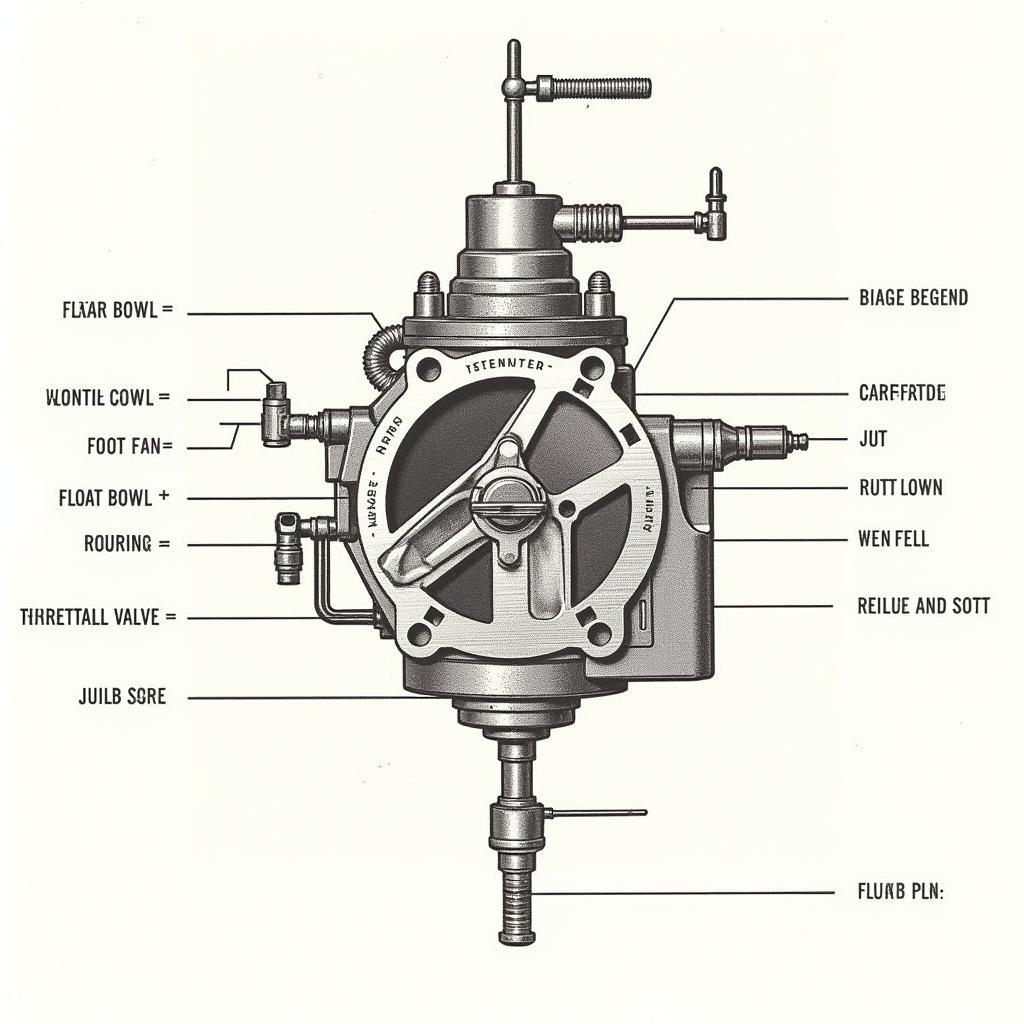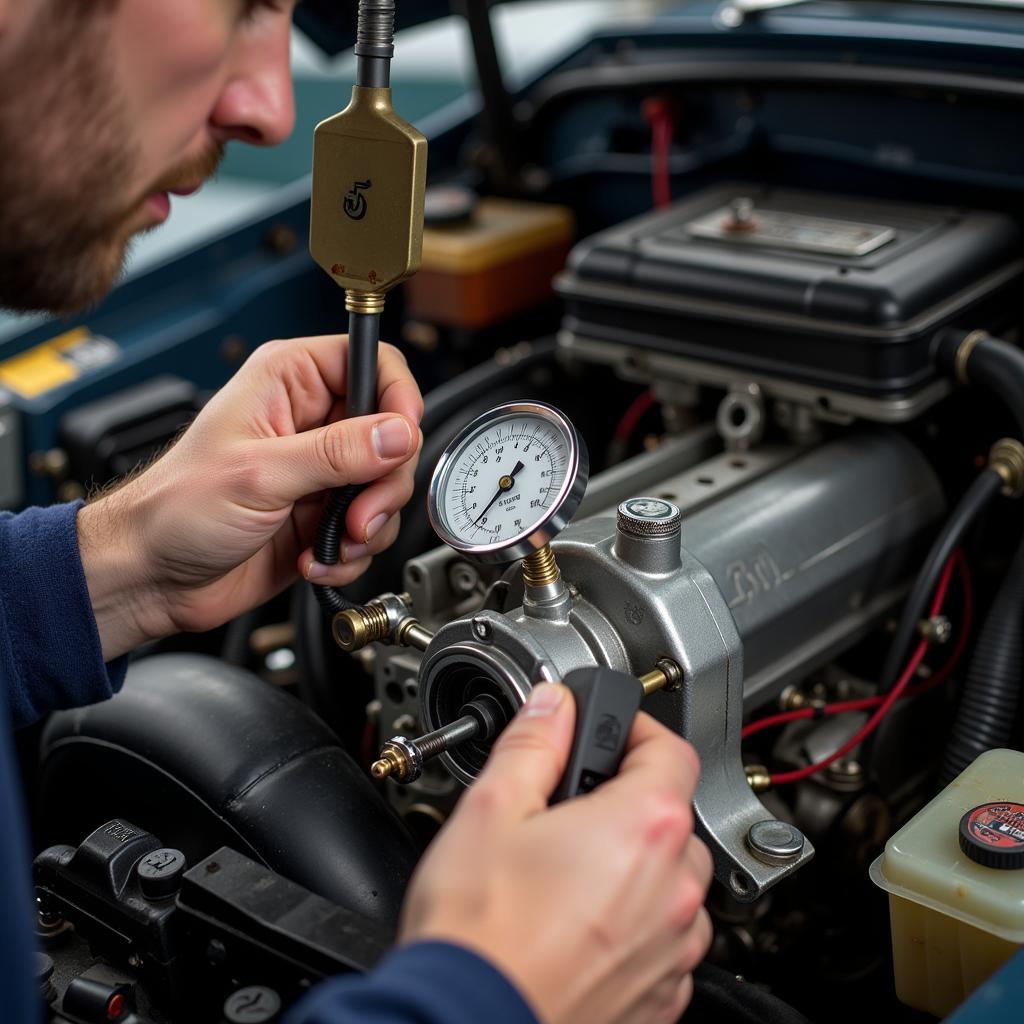Unveiling the Power of VW Carbs: A Comprehensive Guide
October 22, 2024Volkswagen, the iconic car manufacturer known for its reliability and performance, has a rich history of innovation. One such innovation that has played a pivotal role in shaping the brand’s legacy is the development and refinement of their carburetor systems, commonly referred to as Vw Carbs. These ingenious devices, responsible for mixing air and fuel in precise ratios, have powered generations of Volkswagen vehicles, leaving an enduring mark on automotive engineering.
Understanding the Fundamentals of VW Carbs
At its core, a carburetor is the heart of a naturally aspirated engine, meticulously regulating the air-fuel mixture that is essential for combustion. VW carbs, renowned for their simplicity and effectiveness, operate on the principle of Venturi effect, where air flowing through a constricted passage creates a low-pressure area, drawing fuel from the float bowl and into the airstream. This precisely measured air-fuel mixture is then delivered to the engine cylinders, where it ignites, generating power.
 VW Carb Diagram
VW Carb Diagram
Exploring Different Types of VW Carbs
Over the years, Volkswagen has employed various types of carburetors in their vehicles, each tailored to meet specific engine requirements and performance goals. Some of the most prevalent types include:
-
Solex Carburetors: Known for their widespread use in classic Volkswagen Beetles, these carburetors are cherished for their simplicity and ease of maintenance.
-
Pierburg Carburetors: Commonly found in later models of Volkswagen vehicles, Pierburg carburetors offer enhanced fuel efficiency and emissions control.
-
Weber Carburetors: Renowned for their performance-oriented design, Weber carburetors are a popular upgrade among Volkswagen enthusiasts seeking increased power output.
Common Issues and Troubleshooting Tips for VW Carbs
While VW carbs are generally robust and reliable, they can experience issues over time due to wear and tear or improper maintenance. Some common problems include:
-
Clogged Jets: Over time, dirt, debris, or fuel residue can accumulate in the carburetor jets, restricting fuel flow and affecting engine performance. Cleaning the jets with carburetor cleaner is essential for restoring optimal fuel delivery.
-
Vacuum Leaks: Leaks in the carburetor’s vacuum system can disrupt the delicate balance of air and fuel, leading to rough idling, poor acceleration, or even stalling. Identifying and sealing any vacuum leaks is crucial for ensuring proper engine operation.
-
Float Level Issues: The float level determines the amount of fuel in the carburetor bowl. An incorrect float level can result in fuel starvation or flooding. Adjusting the float level to the manufacturer’s specifications is necessary for maintaining the correct fuel supply.
Optimizing VW Carb Performance for Enhanced Driving Experience
For Volkswagen enthusiasts looking to extract the maximum performance from their vehicles, optimizing the carburetor can yield noticeable improvements in power, throttle response, and overall drivability. Some effective methods include:
-
Jetting: Upgrading to larger jets allows for increased fuel flow, enriching the air-fuel mixture and boosting power, particularly in higher RPM ranges.
-
Air Filter Upgrades: Replacing the stock air filter with a high-flow alternative enhances airflow into the engine, improving combustion efficiency and potentially increasing power output.
-
Ignition Timing Adjustment: Optimizing the ignition timing ensures that the spark plugs ignite the air-fuel mixture at the optimal moment for maximum combustion efficiency and power delivery.
 VW Carb Tuning
VW Carb Tuning
The Enduring Legacy of VW Carbs in the Automotive World
VW carbs have played an undeniable role in shaping the Volkswagen brand and the automotive landscape as a whole. Their simplicity, reliability, and affordability have made them a cornerstone of automotive history, powering countless journeys and leaving an undeniable mark on engineering excellence. While modern vehicles have transitioned to electronic fuel injection systems, VW carbs continue to be cherished by enthusiasts and collectors, embodying a nostalgic connection to a bygone era of automotive ingenuity.